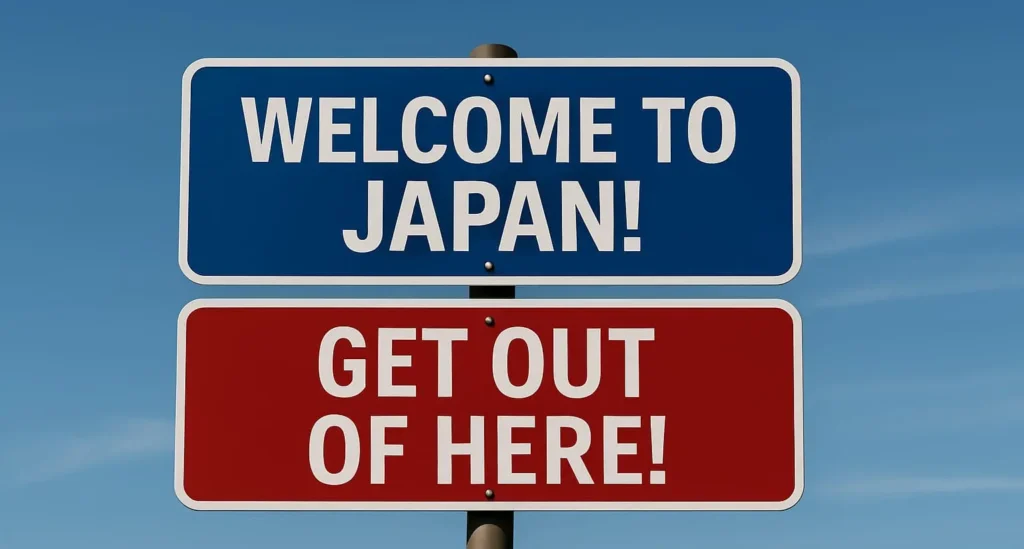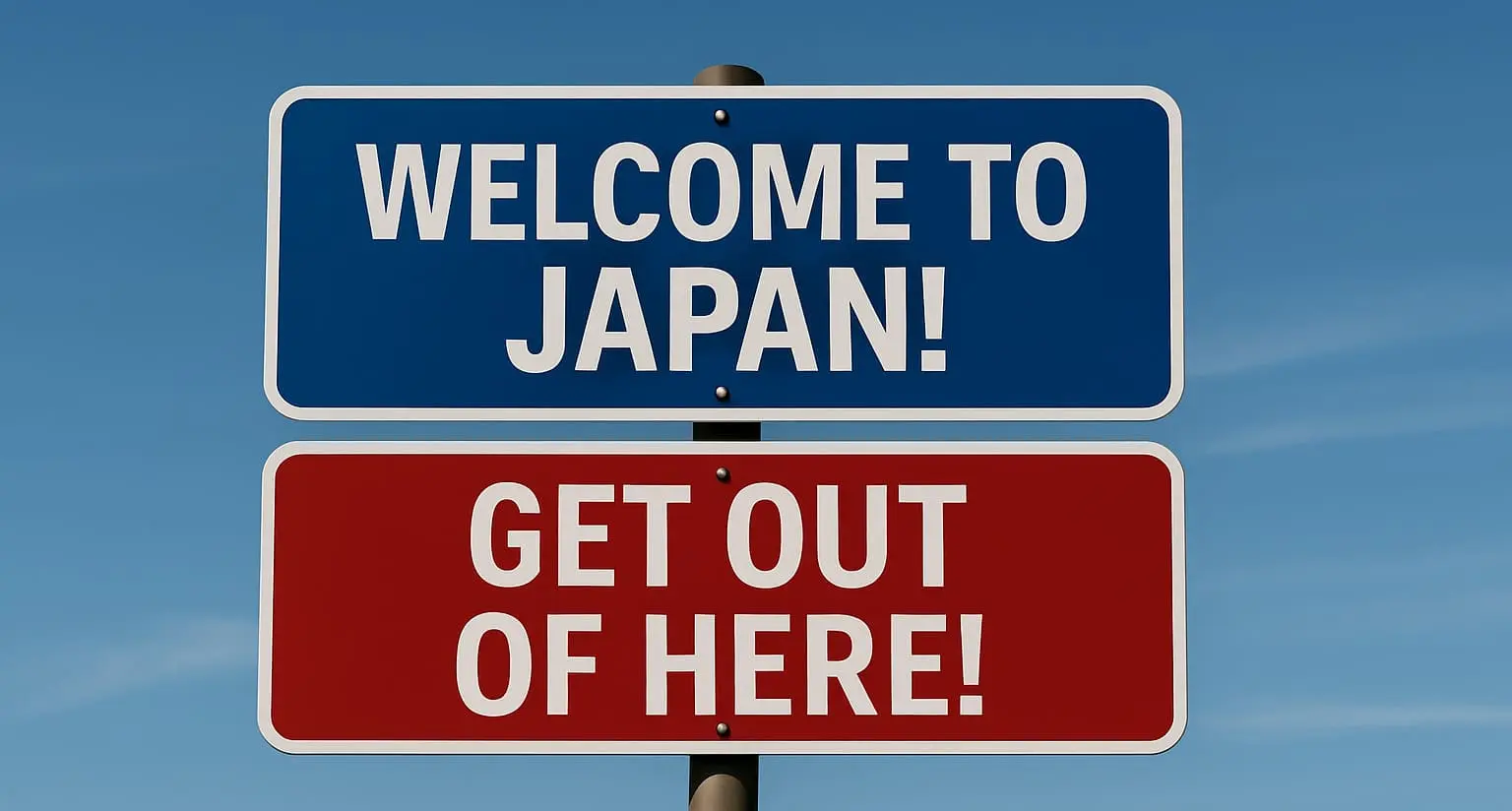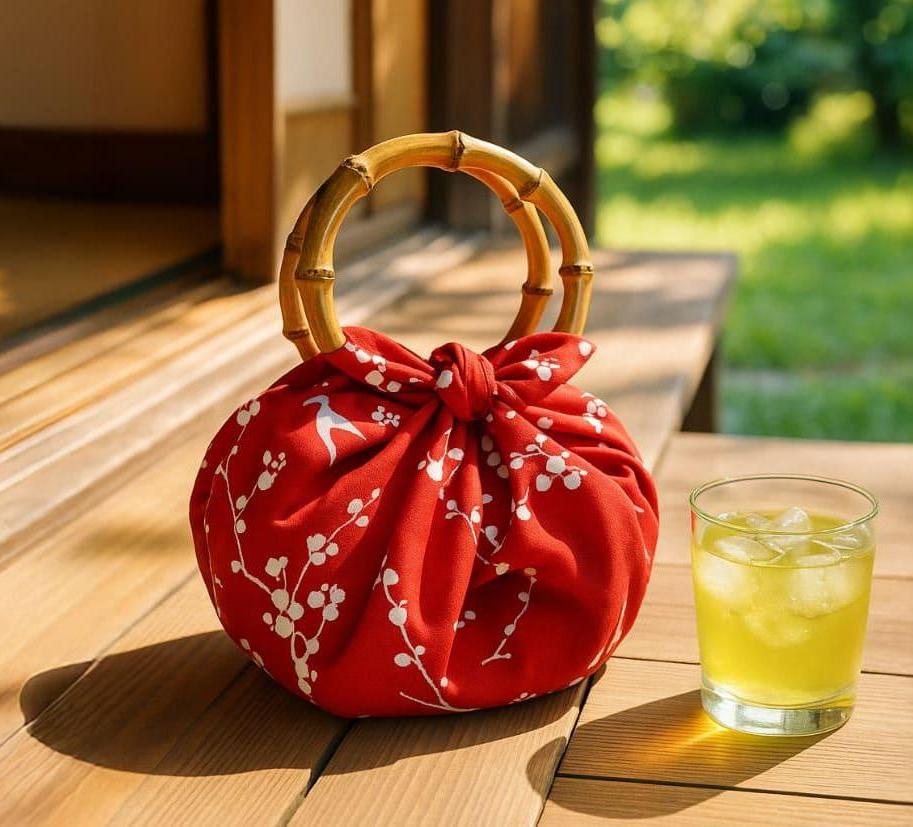A rather negative title, I admit.
But it’s a concern quietly whispered both inside and outside Japan these days.
And if it were true, you might start to wonder —
should you rethink your next trip, and choose somewhere else instead?
In this article, I’ll take a closer look at whether Japan is really turning xenophobic,
and what might lie ahead — all from a Japanese point of view.

1. What the Headlines Say
Lately, you may have noticed an increasing number of headlines claiming that “Japan is becoming less friendly to foreigners.”
For example, Le Monde reported on “a rising wave of xenophobia in Japan,”
and The Guardian ran similar stories exploring the same theme.
For anyone skimming those headlines, it’s easy to assume that Japan has started turning its back on outsiders.
But, as always, the reality is more complicated.
Most of these stories don’t describe open hostility on the streets, but rather a subtle sense of social fatigue — a country that feels quietly closed in on itself.
Inside Japan, too, there have been moments that seem to echo this tone.
Certain politicians and parties promoting “Japan First” rhetoric have gained ground in recent elections, feeding the impression that a more inward-looking mood is taking hold.
Each time we read such stories, we internalize the idea — almost without noticing — that Japan is drifting toward xenophobia.
And once that idea takes hold, it begins to feel like an unshakable truth.
Still, as the saying goes, “where there’s smoke, there’s fire.”
Behind these impressions lie some genuine social and economic shifts that deserve attention.
In the next chapter, we’ll look at those underlying changes — and how they’ve quietly shaped the narrative that “Japan is becoming less welcoming.”

2. Behind Japan’s ‘Rising Xenophobia’ Headlines
2-1. The Economic Backdrop: When Envy Meets Inflation
In recent years, Japan has been living through a mix of rising prices and a weak yen.
That’s hardly unique in today’s world — but Japan’s case feels different.
Wages have barely moved, while the cost of everything else keeps climbing.
At the same time, the weaker yen has brought foreign tourists flooding back.
Hotels are fully booked, popular restaurants have lines around the block,
and visitors spend freely at luxury hotels and sushi counters alike.
Scenes like these appear daily on news programs and social media feeds.
For many Japanese, this sight stirs a complicated mix of emotions.
They understand — rationally — that tourism helps the economy.
Yet in their daily lives, everything feels harder, tighter, more expensive.
And then they see images of foreigners enjoying “cheap Japan.”
Not long ago, Japan was considered a model economy.
For some who still remember those days, the current situation feels quietly humiliating.
Each new story about booming inbound tourism feeds the uneasy thought that
the nation’s limited resources are being poured — or even drained — into the hands of outsiders.
It isn’t hatred that forms beneath the surface, but something subtler:
a sediment of envy and fatigue settling at the bottom of the collective mind.
2-2. The Reality on the Ground
Foreign media sometimes claim that “Japanese people have become colder toward foreigners.”
But for anyone actually living here, that phrasing feels a bit off.
What you see in most cases isn’t hostility — it’s simple exhaustion.
Across tourism, dining, and transportation, severe labor shortages persist even as inbound demand surges.
Staff greet visitors with practiced smiles, but the strain shows;
there’s barely enough energy to keep things running, let alone to appear endlessly cheerful.
What may look like coldness is often just fatigue wearing a uniform.
Outside the major cities, the situation feels even tighter.
Locals sometimes describe their daily routines as being “invaded by tourism.”
Convenience stores near sightseeing spots are always crowded,
and buses are so full that elderly residents can’t find a seat.
Each of these inconveniences seems minor, but together they build a quiet frustration —
one that eventually surfaces as a wish: “We just need things to calm down a little.”
Such fatigue and friction could happen in any country.
Japan hasn’t suddenly turned xenophobic;
it’s simply a society that opened up again before it had fully recovered.
2-3. Media and Policy Disconnect
Another factor that complicates the mood is the disconnect between media and policy.
The government continues to boast impressive numbers — “trillions of yen in inbound revenue” —
and the media echo this as a story of economic hope.
But many ordinary citizens watching the same reports feel differently.
They don’t see the benefits reaching their own lives.
As inbound tourism grows, hotel and restaurant prices rise,
and locals say there are now places they can no longer afford to visit.
Amid this sense of being left behind, the world outside Japan seems to be racing ahead at incredible speed.
That quiet frustration, mixed with uncertainty and fatigue, gradually solidifies into a convenient narrative —
that Japan is turning away from foreigners.
3. The Japanese Perspective
Anyone paying even modest attention to public affairs can see it clearly:
without inbound demand, Japan’s economy simply cannot stay afloat.
The shift from an “economic superpower” to a “nation sustained by tourism”
is no longer a debate — it’s a fact most people have quietly accepted.
That’s why the idea of wanting a country with no foreigners at all
is limited to a small group holding unusually extreme views.
Yet those voices often speak the loudest,
as if they represented the will of the entire nation.
Meanwhile, the vast majority of citizens — anxious, frustrated,
and unsure of what the future holds — can only watch in discomfort
as such rhetoric takes center stage.
Still, what many Japanese are truly angry about
is not the presence of foreign visitors,
but the powerlessness of our own government
— and at times, of ourselves —
to fix the problems we face.
That’s why I find it troubling
when distorted media coverage gives potential travelers
the impression that Japan has become unwelcoming.
Let’s be clear:
most Japanese people have no desire whatsoever to exclude foreigners.
What we want is to improve our own quality of life —
something that should never be twisted or weaponized
by a handful of nationalists looking for an easy target.
4. Conclusion – Japan’s Path Forward
Japan has only just begun its journey as an open country,
and there are still many challenges left to solve.
The recent debates over overtourism are just one of them.
To me, the growing talk of xenophobia —
the notion that Japan is turning its back on outsiders —
feels less like a political shift and more like
the sound of a society adjusting to change.
Japan will continue to open up in the years ahead.
And somewhere beyond these growing pains,
I believe there lies the image of a more mature,
more welcoming Japan —
one that has learned how to share itself with the world
without losing its sense of self.





